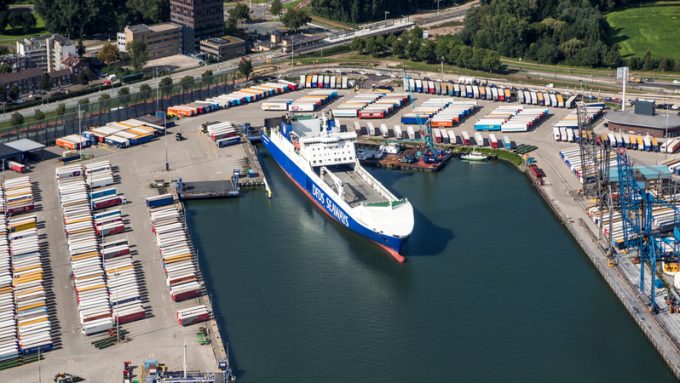Karen Dyrskjøt Boesen set to become DFDS's new CFO
Danish ferry and logistics operator DFDS has appointed Karen Dyrskjøt Boesen (above) as its new ...

Danish ferry group DFDS has laid up around 20% of its capacity – 12 of its 50-strong fleet – in response to the coronavirus pandemic.
And it has revealed that it expects first-quarter profits to have fallen 10%, year on year.
In addition to closing two routes last month – Oslo-Copenhagen and Newcastle-Amsterdam, which were more reliant on passenger revenues – chief executive Torben Carlsen said some 25% of its cross-Channel departures had been suspended.
He believed this was a similar amount to Dover-Calais rival P&O Ferries.
DFDS has also taken out some freight capacity in response to reduced demand, particularly on routes with traditionally strong demand from the automotive industry, but Mr Carlsen said this was in line with the market.
“Other operators such as Cobelfret have also taken out vessels, especially where they are heavily dependent on automotive volumes – but we haven’t lost market share from what we are doing.”
In a trading update today, the company said it expected its first-quarter ebitda to come in at Dkr610m ($89m), a decline of 10% on the year before, with revenues down just 1% year on year to Dkr3.8bn.
“Around half of the decrease in ebitda was related to lower passenger activity, caused by Covid-19,” it said. “The other half was due to a negative Covid-19 impact on freight, increased earnings in the comparison period Q1 19 from UK stockpiling ahead of Brexit and a lower result for special cargo logistics, mainly due to one-off costs.”
Mr Carlsen claimed the company remained in a stable cash position, with overall liquidity at the end of the first quarter of Dkr1.7bn – comprising Dkr300m in cash “undrawn committed credit facilities of Dkr1.4bn – while this month it had secured additional loan facilities of Dkr750m.
It identified four key risks for the next quarter as: the continuity of its operations being “contingent on employee health and continued exemption of our operations from lock-down initiatives”; another hit to passenger earnings during the forthcoming high season between June and August due to the expectation that lockdowns continue; lower activity in certain sectors during and post lockdowns may reduce freight volumes, with the automotive sector highlighted as “a key risk”; and “increased credit risk on suppliers, counterparts and customers”.
In contrast, Finnish ferry operator Viking Line, which operates between Sweden and Finland and Finland and Estonia, said freight volumes carried since the onset of the pandemic had been heavy, with vessels approaching full utilisation.
Freight director Harri Tamminen said volumes had continued to grow since Easter and the market showed no indications of any volume reductions in the near future.
“We have been able to optimise the schedule to be followed during this exceptional period, both in terms of timetables and traffic frequency, through good co-operation with our customers and by taking into account the transport needs of the market,” he added.
Comment on this article